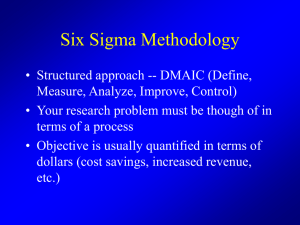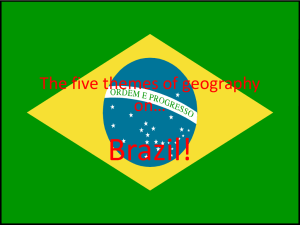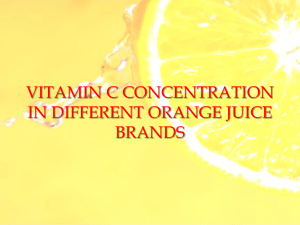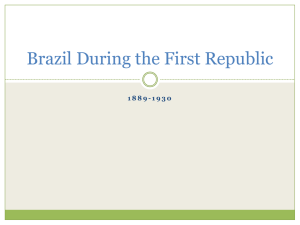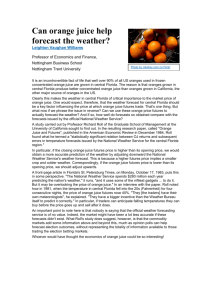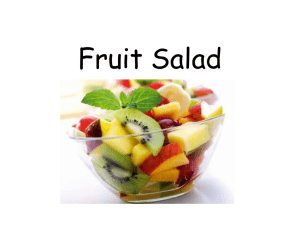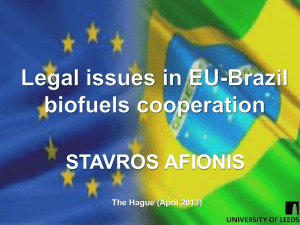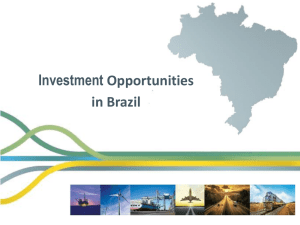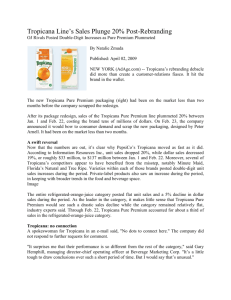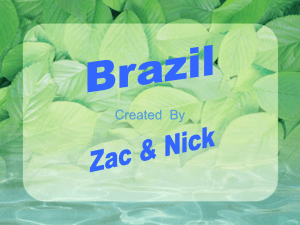Brazil Joint Venture
advertisement
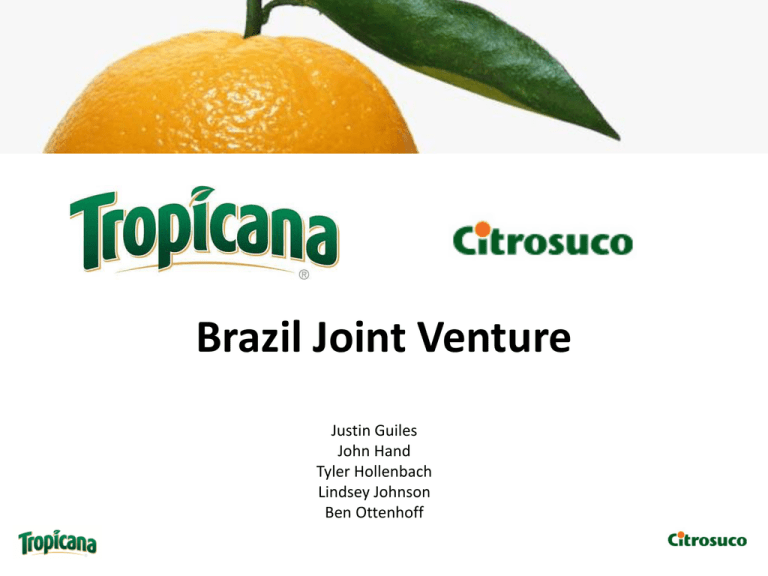
Brazil Joint Venture Justin Guiles John Hand Tyler Hollenbach Lindsey Johnson Ben Ottenhoff Investment • Tropicana is a subsidiary of PepsiCo and is the world’s leading producer of chilled juice. • Citrosuco is the largest orange producer in Brazil and is a subsidiary of the Fischer Group. • Tropicana will enter into a joint venture with Citrosuco to source a greenfield investment in Bahia, Brazil. • Location strategically selected based on incentives offered by “Agência de Desenvolvimento do Nordeste” (ADENE) Investment, Cont’d • Tropicana to vertically integrate a key component of their United States operations value chain – FCOJ • Investment will allow Citrosuco to expand their current market share as a global orange producer. • Contribution to the LLC by the Partners will be 90/10 with profit sharing percentages at 50/50 Market Analysis • Brazil exported $2 billion worth of orange juice to international trade partners in 2008, representing 80% of the world’s orange juice • 60% of Brazilian orange juice went to the European Union, 20% to the U.S., and 10% to Japan • Brazil exports 95% of their production Regulatory Environment Brazil • Stable political/regulatory environment • Foreign investment in Brazil is not subjected to government authorization or approval. United States • As a protectionist measure, the U.S. uses zeroing, an ad valorem tariff based on comparison of costs. • Due to the fluctuation in the price of orange juice, the tariff rate tends to be between 27% and 49%. Currency/ Spot Markets • Brazil was plagued by hyperinflation from 1980 – 1995, but has since taken up monetary policy to significantly lower that risk. • To mitigate against unexpected currency fluctuation, we propose that Tropicana purchase currency futures to hedge against possible inflation/deflation. • Proposal will reduce Tropicana’s exposure to FCOJ spot market rates on the NYBOT. Recommendation: Pursue the Joint Venture 1) The ability to realize profit despite U.S. tariffs 2) Diversification of product sources as a hedge against natural disaster 3) The ability to use oranges for product sold outside of the U.S. as those markets grow despite the current regulatory conditions in the U.S.

